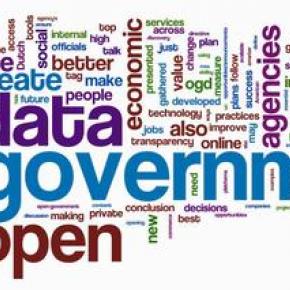 GOVERNMENT
OF INDIA
GOVERNMENT
OF INDIA
 GOVERNMENT
OF INDIA
GOVERNMENT
OF INDIA
 In the recent times India has seen an increasing demand for transparency and accountability. In this context the idea of open government data can play a major role to uphold these principles of transparency and accountability. For a country as diverse as India, the process of governance involves a lot of complexities. Deliberations and consultations with the various stakeholders within and outside the government is a key aspect of policy formulation in India. Given the important social and economic issues which the government has to deal with in India, it is more than imperative that government’s decision making process is an informed one, so that the success of its schemes and initiatives are ensured with a little margin for error. These schemes and initiatives which are targeted towards the citizens also require an inbuilt process to uphold accountability and transparency to ensuring that these schemes are actually benefitting the needy. Therefore, for an informed decision making and transparent review of the government policies the essential ingredient is the availability of data.
In the recent times India has seen an increasing demand for transparency and accountability. In this context the idea of open government data can play a major role to uphold these principles of transparency and accountability. For a country as diverse as India, the process of governance involves a lot of complexities. Deliberations and consultations with the various stakeholders within and outside the government is a key aspect of policy formulation in India. Given the important social and economic issues which the government has to deal with in India, it is more than imperative that government’s decision making process is an informed one, so that the success of its schemes and initiatives are ensured with a little margin for error. These schemes and initiatives which are targeted towards the citizens also require an inbuilt process to uphold accountability and transparency to ensuring that these schemes are actually benefitting the needy. Therefore, for an informed decision making and transparent review of the government policies the essential ingredient is the availability of data.
Government particularly in India collect process and generate a large amount of data in its day-to-day functioning, which are lying in storage and are difficult to put to effective use. Evidence-based planning is essential for socio-economic development and all this depends on availability of quality data. Asset and value potentials of data are widely recognized at all levels. Data collected or generated through public investments, when made publicly available and maintained over time, their potential value could be more fully realized. It helps building a comprehensive statistical picture of the country and allows maximum use or reuse of data, which has the tremendous potential to benefit the citizens socially and economically through data-driven innovation. However, most of such data, which are non-sensitive in nature, remains inaccessible to citizens buried deep down in the government records and files.
Following are the benefits of open government data:
Given the above mentioned benefits of Open Government Data in India, the Open Government Data Platform of India (www.data.gov.in) came into existence with a single point objective that is to make Government data available to the citizen at large in an open format through easy access modules. Since its inception in 2012 the platform has been at it when it collecting and publishing data in open format and has made sizeable headway in this regard. However, the real impact of Open Data in India can only be realized with once each and every Ministries/Departments, including State and Local Governments come on board and share data through this platform.
Akhilesh Srivastava is a Senior Data Scientist working in the field of Open Data & Big Data.